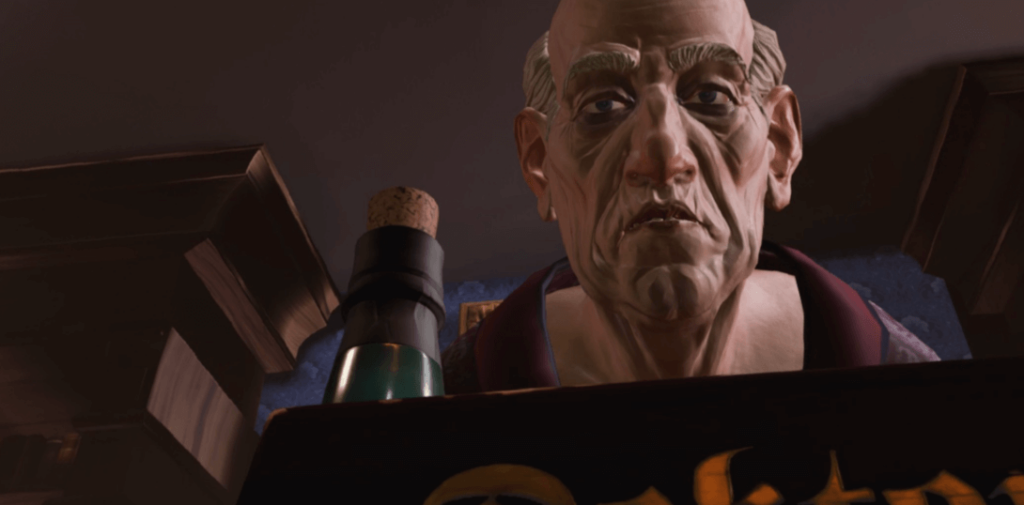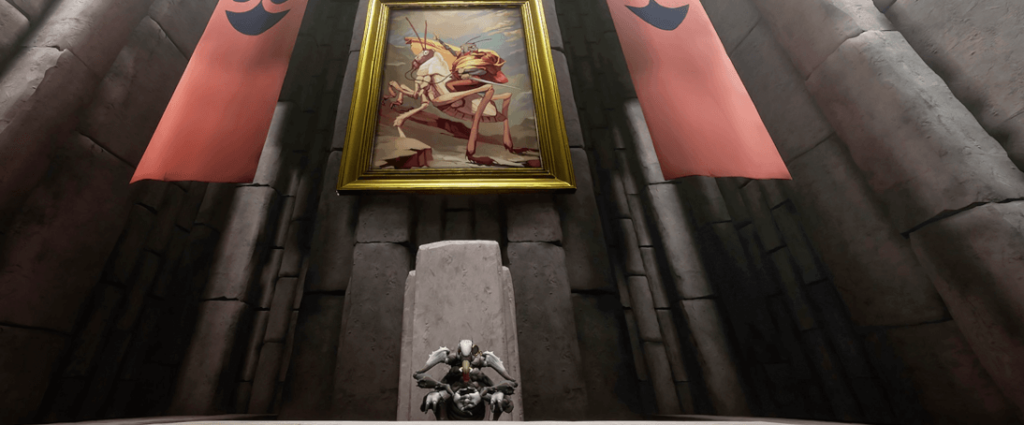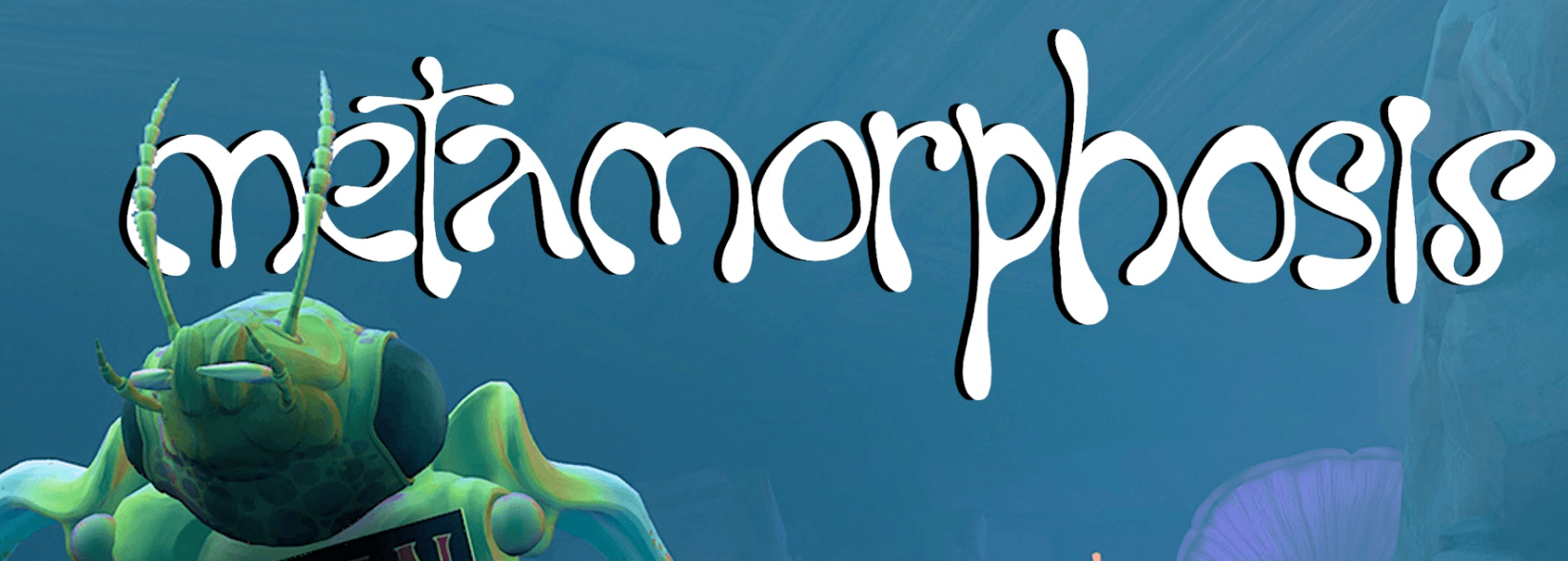Virtual reality has long promised to transport us—but Metamorphosis on Meta Quest redefines what that means. Instead of human-centric worlds, you inhabit the hyper-sensory universe of insects, magnifying the mundane into the extraordinary. Imagine navigating blades of grass as skyscrapers or dodging raindrops like falling boulders. This isn’t just gaming; it’s a perspective revolution.
Rewiring Reality Through an Insect’s Eyes
Why does this matter? The gaming landscape is shifting. Titles like The Sinking City Remastered (now on Unreal Engine 5) and solo-dev indie hits prove audiences crave innovation. Metamorphosis taps into this demand, blending surrealism with biological accuracy. Did you know ants use polarized light to navigate? The game integrates such details, transforming entomology into adrenaline.

Meta Quest’s hardware amplifies the immersion—120Hz displays mimic compound vision, while spatial audio replicates the buzz of a mosquito’s wings. But beyond tech, it’s a gateway to empathy. How would you strategize if your lifespan was 24 hours? Or evade predators with a 360° field of view? These aren’t hypotheticals; they’re gameplay mechanics.
As AI-driven tools spark debates (like Studio Ghibli-style art generators) and franchises like Minecraft blur reality with collectibles, Metamorphosis carves a niche. It’s not escapism—it’s education disguised as adventure. Ready to see the world anew? Your six-legged odyssey begins here.
Engineering Empathy Through Insect Mechanics
Metamorphosis doesn’t just shrink you—it rewires your instincts. Where most VR games prioritize human-scale physics, this title leans into arthropod logic. Take locomotion: Cockroaches sprint 50 body lengths per second (equivalent to 200mph for humans). The game replicates this through a disorienting blur effect at peak speed, forcing players to rely on antenna-like controller vibrations to avoid collisions. It’s not about comfort—it’s about authenticity.
The Sinking City Remastered’s Unreal Engine 5 glow-up proves players crave technical polish—but Metamorphosis weaponizes hardware limitations. Meta Quest’s 120Hz display mirrors insects’ flicker fusion rate (how they perceive motion), turning mundane tasks like climbing a table leg into a frame-rate-dependent puzzle. Miss a jump? Your compound vision literally fractures into hexagonal shards—a biomechanical “game over” screen.
Consider the drug-dealing sim from Kotaku’s solo dev—proof that innovation thrives in constraints. Similarly, Metamorphosis uses minimalist controls to amplify complexity. One joystick controls three pairs of legs via procedural animation algorithms. Want to scale a wall? Angled surfaces trigger automatic gecko-like adhesive footpads—unless you’re sprinting, which risks detachment. Survival demands understanding your body’s limits.

Biological accuracy meets existential dread. Fire ants survive floods by linking into living rafts—a mechanic repurposed here for cooperative multiplayer. Players form writhing chains to cross “rivers” of spilled soda, with voice chat distorted to mimic mandible clicks. Fail, and the colony drowns. It’s Minecraft’s blocky teamwork reimagined through Darwinian stakes.
AI controversies loom large in gaming (see Studio Ghibli-style generators), but Metamorphosis sidesteps artificial shortcuts. Every dew drop refracts light based on real fluid dynamics, and spider silk tensile strength matches peer-reviewed data (3-6 GPa). Developers collaborated with Cambridge entomologists to model termite pheromone trails—now used as in-game navigation markers visible only under UV filters.
Hardware becomes habitat. Spatial audio doesn’t just simulate buzzing—it maps mosquito wingbeat frequencies (300-600Hz) to positional threats. A wasp’s approach vibrates differently in each ear, demanding split-second evasive rolls. Pro tip: Close your eyes during attacks. Insect hearing often outperforms vision in predator detection—a counterintuitive tactic that triples survival rates in late-game raids.
Even time bends to entomological rules. Mayflies live 24 hours; their playable campaign locks progress to real-world circadian rhythms. Miss a dawn objective? The character dies permanently. It’s a brutal nod to indie roguelikes—but here, mortality teaches ecological interdependency. Your decaying corpse becomes fertilizer for fungi that later aid allies. Gruesome? Yes. Educational? The Smithsonian endorsed its decomposition physics.
Beyond the Hive—What’s Next for Perspective-Shifting VR?
Metamorphosis isn’t just a game—it’s a blueprint for VR’s future. Like the indie drug-dealing sim that dominated Steam (400k sales, solo dev), it proves innovation thrives under constraints. But here, constraints become features: Meta Quest’s hardware limitations mirror insects’ sensory adaptations, turning flicker rates and wingbeat physics into gameplay pillars. Want actionable insight? Replay levels eyes-closed—audio cues reveal hidden threats, echoing how moths evade bats.
While debates rage over AI-generated art (see Studio Ghibli-style tool controversies), Metamorphosis grounds its surrealism in peer-reviewed science. Spider silk strength? Check. Termite pheromone navigation? Validated by Cambridge entomologists. This rigor creates trust—players don’t just suspend disbelief; they absorb real-world biology. Pro tip: Share gameplay clips with #InsectFacts—the Smithsonian’s decomposition endorsement could spark STEM curiosity.
Looking ahead, follow The Sinking City Remastered’s Unreal Engine 5 overhaul—polish matters, but so does purpose. Future updates could integrate cooperative ant-raft mechanics into educational modules or VR field trips. Imagine classrooms using Meta Quest to simulate hive collapses, fostering ecological empathy. Already, Minecraft bridges virtual/physical via McDonald’s collectibles—why not insect-themed AR scavenger hunts?
Your takeaway? Metamorphosis redefines immersion as a tool for transformation. It’s not about escaping reality—it’s about rewiring how we engage with it. Next time you swat a fly, ask: What if that could be my next VR boss battle? The answer might just change everything.

